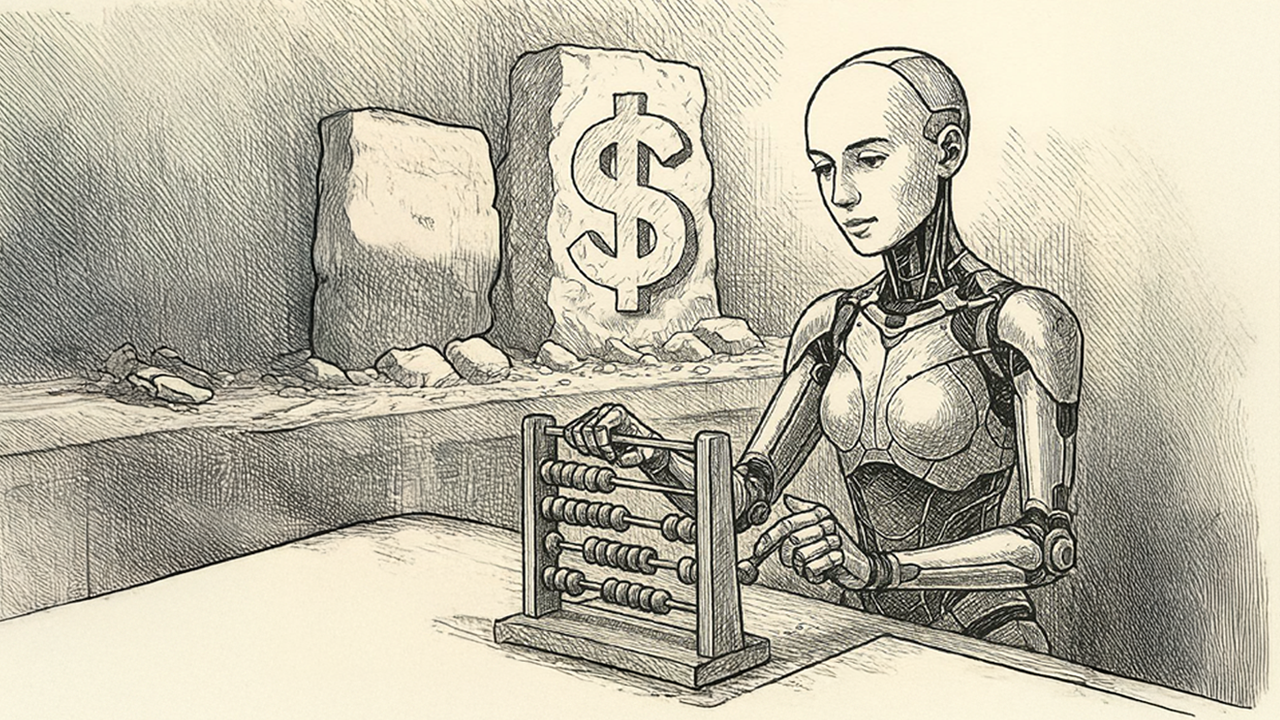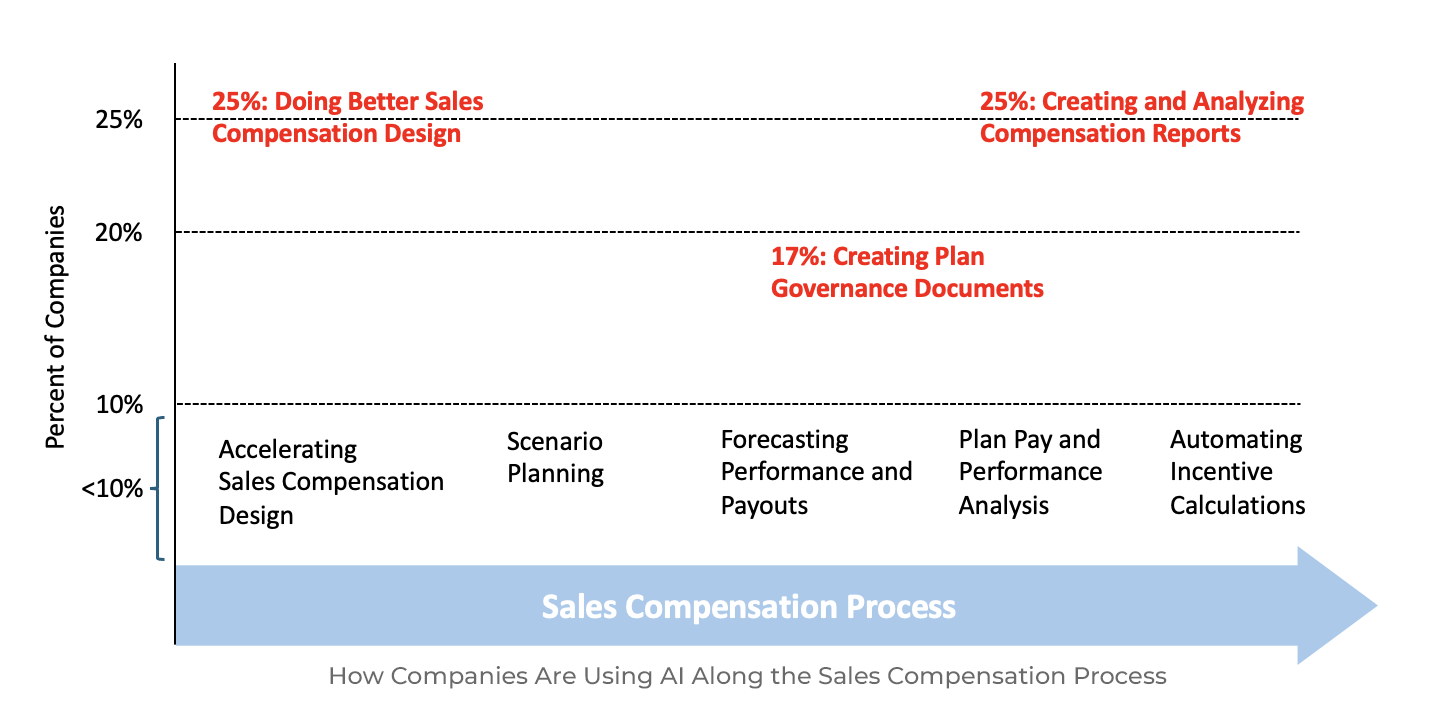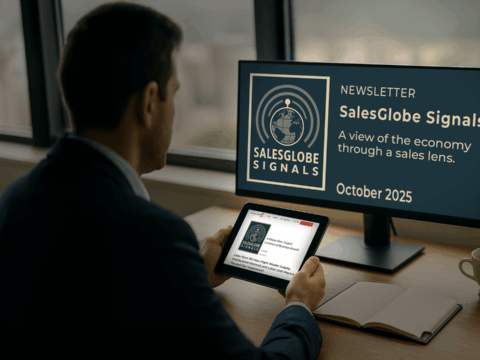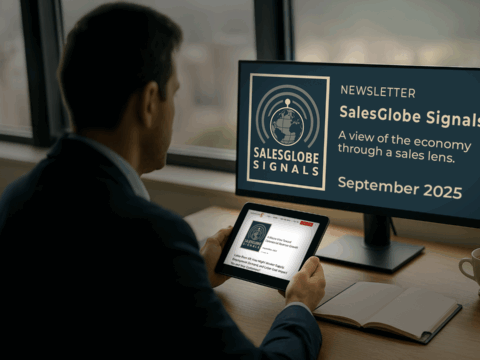How are Organizations Using AI for Sales Compensation and What’s Ahead?

AI is on the minds of most executives, and it has already become a major force in how we increase our capabilities, whether in strategy, sales, operations, HR, marketing, or finance. Seventy eight percent of organizations regularly use generative AI in at least one business function, up 55% year-over-year, according to McKinsey. But where do they stand when it comes to sales compensation? To find out, SalesGlobe conducted a survey of companies across industries on their use of AI for sales compensation, their challenges, and their plans ahead. Our findings may surprise you.
Where Things Stand Today
Despite broad application across functions, the percentage of companies using AI for sales compensation is opposite of the cross-function level of adoption with the majority (71% of organizations) saying they’re not currently using AI for their work in sales compensation. The AI highway is open for sales compensation and there’s plenty of opportunity to get in the passing lane and leverage AI for gains in effectiveness, efficiency, and solution-development. Let’s look at how.
For those organizations leveraging AI there’s early traction as well as some telling patterns. Two of the top ways companies are leveraging AI for sales compensation are:
- Using AI for sales compensation or for doing better sales compensation design and
- Creating and analyzing compensation reports.
These two areas represent the front-end and the back-end of the sales compensation process in terms of design and analysis. Following closely behind is creating plan and governance documents (17% of companies), which are key to managing the plan.
![]()

![]()
A host of other key functions in the sales compensation process are emerging in AI use (with less than 10% of companies leveraging AI for them) that range from scenario planning to automating incentive calculations.
What Benefits are Companies Seeing?
The benefits are starting to show with most falling under speed and efficiency. Nearly half of companies (44%) say that AI helps free up their time or their team’s time for other work. About one third (33%) say AI reduces workload and speeds up plan administration. That’s huge for lean teams who are being asked to do more with less.
As expected, speed and efficiency are the most common benefits in early-stage application of a new technology like AI. These can help a company reduce workload, cost, or headcount. However, companies can’t stop there, or they won’t be capturing the next big AI opportunity which is to elevate the organization’s capabilities to work at higher level activities that include partnering with the business to develop better solutions to the problems they are facing.
This includes job role decontamination and role upskilling. If the team spends less time on administrative activities like building plan documents, updating procedures, and creating communications, and that time is reallocated to upskilling the role into a sales advisor to the business, this addresses several pain points organizations face today. Here is a summary of our observations over recent years:
- Role Diminishment. Highly competent sales compensation professionals hired by companies to lead a team and partner with the business are diminished into administrative roles that manage a team to “take orders” from the business. These roles are often burdened with taking on many of these activities personally. This leads to high turnover of the best talent that hasn’t been able to tap into and use their expertise.
- The Business Making Decisions Rather Than Experienced Compensation Experts. Plan decisions are being made by the business (rather than sales comp professionals) with good intention, but without knowledge of “what good looks like” losing opportunities to achieve growth goals and other business outcomes that come when experienced sales compensation professionals’ partner with the business to build the best plans together.
- Reactive Changes Rather Than Planful Problem-Solving. Incentive compensation plans are being reactively designed based on knee-jerk reactions to cost of sales or the belief that reps may be paid too much, or not enough (you name the problem, we’ve seen it) and sales compensation professionals often do not have the bandwidth or the authority to validate and uncover root cause issues (i.e., solve the real problem) and incorporate that insight into better plan designs.
Leveraging AI for sales compensation is all about turning the function of sales compensation into a higher-level advisor role that supports the business by delivering great solutions to the problems they are facing and goals they must achieve. Better solution development will help companies differentiate from competitors beyond cost or efficiency alone, and your business will reap the benefits of revenue and profit results, which are far beyond saving dollars through automation.
About a quarter of companies see the benefit of AI creating better ideas. However, rather than relying on AI to develop better ideas, companies should be aggressively moving toward ways to help their teams leverage AI to free them to develop better ideas, as another quarter of respondents report. To do this successfully requires an iterative human and AI relationship to do integrated problem-solving and solution development.
This iterative approach can turbo charge our human problem-solving capability but, the catch is, it also requires us to further develop our team in critical thinking and problem-solving capabilities rather than letting them become thinking-dependent on AI.
![]()

![]()
What Tools Are Organizations Using?
There’s no shortage of AI tools and it seems like more are springing up every day. However right now, ChatGPT is leading the pack, leveraged by 61% of organizations that are using AI in this space. Microsoft Copilot is close behind at 48%, potentially due to its availability as part of the Microsoft platform. From there, the field broadens as teams are trying Gemini, Grok, and SPM platforms with embedded AI features as well as custom applications. It’s a mix of experimentation and exploration as companies figure out what works best for their team and tech stack.
![]()

![]()
What are the Roadblocks for AI in Sales Compensation?
Why are companies seemingly behind on AI adoption for sales compensation? Security, compliance, and legal concerns were called out by nearly half (47% of organizations). In a recent client leadership summit we attended, executives made it clear to the organization that they were not to use AI in their work, except with approved tools and applications. The organization, like many, feared that putting any type of non-public company information or data into unsecured AI tools would essentially be putting it in the public domain, findable by competitors or anyone who used the right prompts.
Indeed, one rogue AI user was held out as an example after he put the company’s entire price list into a public AI tool to see how their prices compared with competitors. He got no good answers back but may have donated valuable information to the public domain. Numerous organizations we’ve talked to have the same concerns. Trouble is, for this company, there are few approved applications available to the sales and sales compensation teams, which has resulted in renegade AI users working around the system.
Another impediment is that teams aren’t trained on how to use AI (46% of organizations), leaving them to experiment individually and chat by themselves or to just wait until the right development comes along. One additional major block is the lack of a strategy for sales compensation (44% of organizations) which points in the direction of leadership, who in turn look at their senior leaders who also lack an AI strategy.
Sales, HR, and compensation leaders have the responsibility of equipping their organizations to be competitive in the future and many face competitors who are already down the road on their AI journeys. We work with some organizations that are already using AI agents to help manage their programs, identify compensation errors, pinpoint performance anomalies, and resolve issues directly with plan participants– saving countless hours and cost– however most are still in a holding pattern of manual processes until strategic clarity emerges at some future point.
The challenge is ensuring a closed safe environment which has opened up avenues for those on the forefront to build proprietary problem-solving and knowledge platforms like the SalesGlobe Sage AI Assistant that strategic companies leverage today, while their competitors look to common industry practices or what they’ve done in the past.
![]()

![]()
The Near-Future Outlook
As we head into the second half of 2025 and beyond, organizations are expecting to leverage AI more in key areas and the proportion of organizations that use AI for sales compensation is expected to flip from 71% not currently using AI to 70% using AI (30% not using). While this is not an across-the-board conversion to using AI for all sales compensation functions, there are several that come to the forefront.
Plan pay and performance analysis is projected to have the greatest incremental increase (not including those organizations already using AI this way) in usage moving from less than 10% of organizations to about 44% of organizations.
Creating plan and governance documents as well as Forecasting performance and payouts are also projected to move significantly to about one third of organizations using AI for these sales compensation functions.
![]()

![]()
Your Call to AI Action
A large majority of organizations are not currently using AI for sales compensation. But that proportion is projected to flip as companies solidify their AI strategies and work through the barriers of security, training, and selecting or developing the right tools for the functions most important to them. Whether your organization is already leveraging AI at an enterprise level, just starting, or developing its strategy, here are three important considerations to get the most out of AI for your sales compensation organization today.
- Focus on the benefits of both improved efficiency and better solution development. Going for efficiency and cost reduction alone is a path many of your competitors will take. But leveraging AI to raise and develop your people to their highest and best use as business advisors and problem-solvers to support growth goals and optimize plan design will differentiate your organization.
- Don’t wait for a complete end-to-end strategy to get started. Sitting idle until you have a fully baked strategy could put you behind by years. Even then, your strategy will likely change when you start implementing. Instead, begin with the incremental functions that address your best opportunities in the sales compensation process and encourage experimentation, within your organization’s security parameters.
- Develop your team’s ability to have an iterative human and AI working relationship. Human-centric AI problem-solving involves both AI and humans. It starts with prompting about the right problem you’re solving for in each situation (whether design, analysis, implementation, or administration) and continues with exploring and modeling options and refining and implementing solutions. Don’t be tempted to let AI do the higher-level thinking and let your organization fall into intellectual atrophy. Take the lead and leverage AI to expand your organization’s human-centric solution development.
As you forge ahead, get help. Don’t go it alone with AI for sales compensation. Enlist experts and peers who are already on the journey and can guide you in yours. For more information, reach out to us at SalesGlobe.com and Enablement.SalesGlobe.com for the SalesGlobe Sage AI Assistant.
* SalesGlobe survey on AI in Sales Compensation, 2025.
* Research and Co-Authorship by Gail Wright
![]()

SalesGlobe is a leading sales effectiveness and data-driven creative problem-solving firm. We specialize in helping Global 1000 companies solve their toughest growth challenges and helping them think in new ways to develop more effective solutions in the areas of sales strategy, sales organization, sales process, sales compensation, and quotas. We wrote the books on sales innovation with The Innovative Sale, What Your CEO Needs to Know About Sales Compensation, and Quotas! Design Thinking to Solve Your Biggest Sales Challenge.

Founder and Managing Partner at SalesGlobe
“We help companies solve tough sales challenges to connect their sales strategies to the bottom line.”




